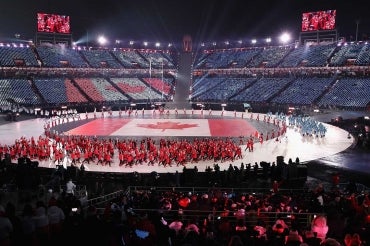U of T's Beth Ali on how universities support their high-performance athletes

Published: February 9, 2018
There are dozens of university students participating in Canada’s 225-strong team of Olympic athletes in Pyeongchang, with University Affairs asking: What does it take to support a high-performance student athlete?
The answer, jokes the University of Toronto’s Beth Ali: “Like the saying goes, it takes a village.”
Ali is a former student athlete and field hockey coach who now serves as U of T’s executive director of co-curricular athletics and physical activity programs. She is often the person who approaches professors to accommodate the athletic schedules of more than 800 students on U of T’s 44 varsity teams, as well as students who are Olympics-bound.
Among the typical concessions for high-performance athletes: deferring exams or letting students write exams elsewhere, with a coach or another university-affiliate official supervising.
“My colleagues on the academic side are very supportive of the notion that high-level sports enhance the student experience and promote healthy and active living and leadership skills,” Ali tells University Affairs. “But the students and their coaches and support networks need to be cognizant of that support and do their part to make sure things work out.”
Students are accommodated, but as the University of Calgary's Penny Werthner says, they “still have to do the work and earn their degree like everybody else.
“As a university system, we are obligated to help them get an education and to think broadly, widely and critically,” says Werthner, the dean of the university's Faculty of Kinesiology.



